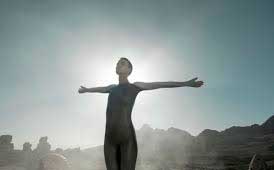Where is Science Fiction going Now?
The Facts?
The Commentary:
Who should care about science fiction?’ I hear that complaint, but since I saw Forbidden Planet (1956) I have been hooked on the best of the genre.
Dealing as it sometimes does with the whole of the mystery of existence, science fiction can communicate both the desolation of a universe without God and the possibilities that emerge if there is one. It can even get around to wondering if Jesus of Nazareth was somehow connected to the source of everything that is.
Forbidden Planet was immediately recognised as a retelling of Shakespeare’s The Tempest and an exploration of the problem of evil. It posed an important question: if anyone ever became so powerful as to be able to control everything that happened on Earth, what would ‘anyone’ do?
The James Bond movie franchise is predicated on the necessity of this planet being saved from some megalomaniac by the said James Bond – because he, after all, has nowhere else to go.
Forbidden Planet was bound by no such logic, for the story begins with the arrival of a space vehicle that insists on landing – to make use (in some kind of emergency) of the resources of a stranded archaeologist and his daughter on this forbidden planet. Things look idyllic to start with but soon ‘go south’ – and in a spectacular way. The tension has to do with the uncertainty of anyone ever ‘getting out of there’.
In 1956 a monstrous mobile presence that had no time for anyone frightened the life out of me – simply because it was invisible until outlined by the entire blaster armoury of the human visitors.
In that movie I heard for the first time of the ‘id’ – for Sigmund Freud the instinctual part of our psychological makeup that we are born with. I also learned that the unrestrained ‘id’ can be deadly indeed. It was Shakespeare [at least in terms of the questions it posed] for the generations on the brink of actual ‘space travel’. It was also raising vital questions about the deadly potential of ‘artificial intelligence’ – an issue still keeping lots of very bright people awake at night. We still do not know whether humankind will succeed in saving itself from the monstrous ‘economy’ we have created.
Here I must not on my life dish out ‘spoilers’ – news of where ‘Raised by Wolves‘ is ‘going’ after episode one, but here are some intriguing components.

‘Mother‘ in ‘Raised by Wolves’ – an android both nurturing and deadly – like a wolf!
- The wolves in question are man-made machines who look like humans (androids), yet the six children (taken to this planet as embryos to ensure they do not die en route) are human and so vulnerable to the environment on this lonely sphere that eventually there remains only one.
- The original legendary founder of the Roman republic and empire was Romulus – who in that legend murdered his brother Remus. Both had been raised by wolves.
- These future androids are agents of an atheistic power that discounts all recourse to prayer – even when that remaining one child wants to go there.
- Then another hostile imperial power comes visiting – the disciples of Mithras – called Mithrasians.
- The Mithrasians are religious and fully human – but ‘tooled up’ for conflict.
- The name given to the surviving boy by ‘Mother’ – the female android who cares for him – is ‘Campion’.
- Edmund Campion is – on our own planet now – an English saint who was hanged,drawn and quartered by the government of Elizabeth I in 1581, on the specious grounds that he was plotting to overthrow ‘the virgin queen’. He was canonised in 1970 by Pope Paul VI as one of the Forty Martyrs of England and Wales. His feast day is celebrated every 1st of December, the day of his execution.
- The series was created by Aaron Guzikowski, an American screenwriter who is reportedly at present a non-practising Catholic. He is said to be interested in a New Atheist focus on the cult of Mithras under the Roman Empire, a matter of current debate by scholars.
[Is Guzikowski not obviously a Polish or Russian surname. ]
This Catholic, at 78, fully believes and relies upon the whole Creed (in so far as he understands it) – and cannot wait to see where ‘Raised by Wolves’ is going on a post-Pandemic planet Earth. As the series has already been renewed for a second season, and these things are designed to ‘run and run’, Guzikowski himself may well not know, as yet.
Sean O’Conaill – December 9th, 2020

Although not something that weighs heavily on the minds of most Catholics today, I see the issue of robotics and artificial intelligence has made its way onto the Sacred Heart calendar for 2020 in the form of Pope Francis’ Prayer Intention for November. It reads as follows:-
“We pray that the progress of robotics and artificial intelligence may always serve humankind” (Pope Francis).
I too have a love of the sci-fi genre. Sadly a lot of of what is on offer is limited to adventure romps for teenagers. But one sci-fi drama series from previous decades that goes beyond that to trigger reflection on these subjects who’s time seems to have come is currently featuring on BBC iPlayer. Its called ‘Battlestar Galacitca’. Lots to say too on issues of government and especially governments’ relationship with their military. Probably my all time favourite box set.